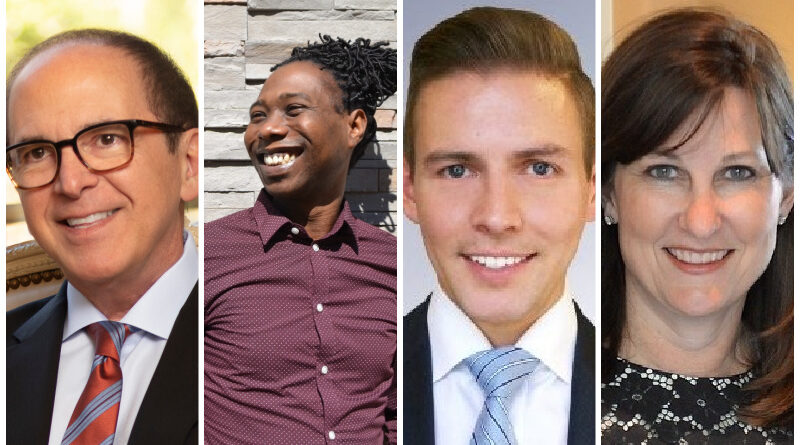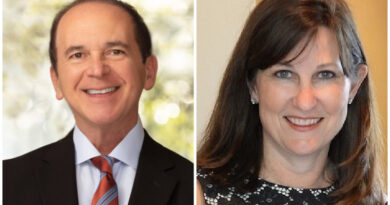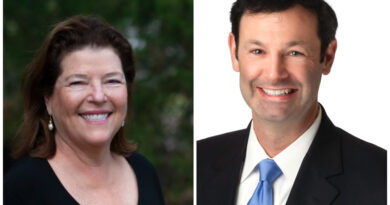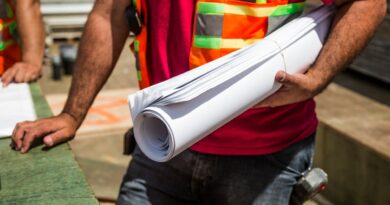On Your Ballot: District 13
Throughout the week, we’ll be sharing the answers provided by city council candidates to questions we posed, as well as questions readers had for the candidates.
Early voting will run from April 19 to 27. Election day is May 1. If no candidate achieves 50% of the vote in any of the races, a runoff will be slated for June 5.
Today we are sharing the answers provided by candidates for the District 13 spot, which is held by Jennifer Staubach Gates, who is term limited.
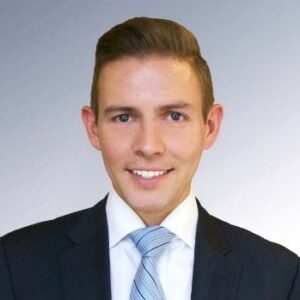
In District 13, Leland Burke, who once ran for the seat in 2013, will run against Da’On Boulanger-Chatman, Ryan Moore, Mac Smith, and Gay Donnell Willis, all first timers.
Tomorrow, we will share the answers from District 11 candidates, and Friday District 6.
Note: At press time, Ryan Moore had not provided his responses. Each candidate was sent a copy of the questionnaire via email, and a follow-up email if necessary.
PN: Tell us about your own district. What are the best things about it? What are the struggles?
Burke: Having lived in District 13 my whole life, I love this community. There are many outstanding aspects of the district, but the best is undoubtedly the people who live here. These hardworking families have created and cultivated some incredibly unique locations. Places like the Museum of Biblical Arts and The Rachofsky House, which hold unique art collections and have been used to benefit our community in numerous ways, are among my favorite places to visit in the district. Also, Preston Hollow Park is a place where many in our community have grown up. The park offers the community a variety of options to be able to get outdoors and enjoy time spent with friends and family. The Northaven Trail, once completed, will offer more greenspace to our community and offer additional options for transportation around the City. I believe libraries are a great asset to our communities and am looking forward to the grand opening of the new public library in Vickery Meadow. This new facility will be a great asset to the surrounding neighborhoods.
While we have these incredible assets, we have challenges, as well. We must work to continue the momentum of the new Vickery Meadow branch library. We must keep our focus on basics across the district, including funding better streets, quality parks and greenspaces and making sure that we fund public safety, while pushing for research-backed, community-based solutions to crime.
Boulanger-Chatman: I can say with great pride that District 13 is very active. This is valuable because there are many great resources and a strong economic contribution coming from our district. We also have some of the highest voter turnout numbers. This shows that our constituents care about our city and are willing to take action to see it advance. I value this, and I hope that we can continue to grow our residents’ awareness and get even more city support.
Like every other district, we struggle greatly with affordable housing (especially in our east and west areas). This is obvious because there is a housing shortage upwards of 18,000 units. In the past couple of years, the city has managed to provide about 2,000 units. At this rate, the shortage will never be resolved. Lastly, our homeless and their encampments must become a priority for our City Council. We, as a city, can no longer afford to put off hard decisions regarding our homeless citizens. The city has money and unused infrastructure that can become economic solutions which will benefit our homeless residents and our community.
Smith: The good: We have a very good housing stock. Our housing is well maintained and property values are rising. Our crime rate is low compared to the rest of the city,
The bad: The city of Dallas has not rolled back property tax rates and we are being taxed out of our homes. Our property taxes have risen about 25% over the last five years while wages have risen about 13%. Our tax rate of 77.6 cents per $100 is about a third higher than Houston and San Antonio at 56 cents.
Donnell Willis: District 13’s greatest strength is our neighborhoods and the people (and pets!) who bring them to life. This is the bedrock of my Neighborhoods First platform, upon which stand these pillars: strengthening public safety, smooth streets and alleys, and keeping taxes down by growing our overall tax base.
As a D13 Crime Watch Leader, I’ve gotten to hear specifics on what is of concern to the neighborhoods represented, as well as developing friendships with those who represent their areas. In knocking on hundreds of doors across the district, there are distinctions and characteristics that set neighborhoods apart—some are newer developments, some have streets lined with mature trees, some are closer to parks and you can easily see the role the greenspace plays in their lives.
One of the newest “best things” is the new Vickery Park Library, which is a result of the 2017 Bond, and I was proud to serve as one of Councilmember Gates appointees to that committee. The library will bring not only resources like ESL and GED classes, WIFI indoors and out, but also a high-caliber youth STEM center. Most importantly, it will give a community that has not had a consistent place to gather, a welcoming space to do so.
Regarding struggles, I continually hear about these top concerns: People want to feel safe in their homes, and we need to get our police officer numbers back up to where they should be to help contain and deter criminal activity. Property tax relief, especially for seniors is a common concern, and I support capping the ad valorem tax increase that has been proposed for those 65 and older.
While serving as Councilmember Gates’ appointee on the 2017 Bond Committee, I saw firsthand the volume of need across critical basic services like Streets & Transportation, Flood Protection & Drainage, Public Safety Facilities and more that we should be able to fund through O & M vs. a bond. To do this, we must grow our tax base through smart development. This can be jumpstarted by resolving the City’s backlog of residential and commercial building permits — we’re sending those with an entrepreneurial spirit to do business in the suburbs, depriving ourselves of what the Dallas Homebuilder’s Association estimates at $264-382 million dollars in tax base growth in their category alone. We’re a standout, in the wrong way, amongst other North Texas communities, so this must be turned around. Though I run a small business today, my background is corporate, working for a global ad firm on Fortune 50 brands, where accountability and performance of publicly traded firms was a daily, sometimes hourly expectation. I would bring no less with me to City Hall.
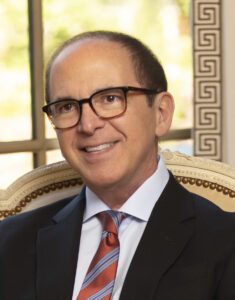
PN: Pick one of those struggles you just mentioned. How would you address it? Please be specific.
Burke: Our district, like districts across the city, deserves strong public safety. As a councilmember, I will be a champion of public safety and advocate to fully fund police and look for ways to invest in innovative, research-backed community-based policing strategies that keep us safe and address root causes of crime. I am honored to have received the endorsements of the Dallas Police Association and the Dallas Fire Fighters Association. I look forward to bringing my 35 years of budget and finance experience to City Hall to advocate for sound fiscal management. I will always look for smart ways to get taxpayers more for their tax dollars. Public safety, as well as excellent basic services, not only enhance the quality of life in our district and across Dallas, but are the foundation for smart growth and opportunity for our entire city.
Boulanger-Chatman: Housing, for our residents, is a large issue that I would like to tackle. We have a dual problem with homelessness and the crippling effects of the pandemic on our local job market. To combat this problem, we will have to address it systemically. I would be a strong proponent for revamping our permitting system to make Dallas on par with surrounding cities which offer a permitting turnaround of a few days to a couple of weeks versus the couple of weeks minimum a contractor would have to wait for permits in Dallas. I would hold the council to the ambitious task of working with contractors and developers who would competitively offer 20% or more of units designated for “affordable” renting. Lastly, our residents must be aware of the assistance programs already available to them. Working with city staff, a new initiative to re-educate the city of housing and like programs available could be developed and implemented.
Smith: We need to start rolling back the property tax rate to bring us into line with Houston and San Antonio. I propose rolling back the tax rate enough to freeze the property tax revenue each year. This year, that would require a 2% cut in the proposed budget and rolling back the tax rate to 74.6cents per $100. We need to put the city of a diet. Not a crash diet, just a diet, and bring our tax rate into line over a period of years.
Donnell Willis: I’ll focus on public safety. Crime is a problem, and people want to feel safe in their homes and neighborhoods. This is why the first pillar of my Neighborhoods First platform is public safety. We need to get the number of police officers back to the recommended number, and I know that work is being done to get there under new Police Chief Eddie Garcia. We also need to be sure these officers are well trained and versed in community policing, where they become part of the community versus operating in an adversarial way. This is how you solve crimes and, eventually, deter crime.
In D13, we see mostly burglaries and theft of motor vehicles, or unauthorized use of motor vehicles. However, any crime is a violation and contributes to a feeling of insecurity around safety, and that does not a strong community make. Dallas’ overall murder rate is high, and aggravated assaults are up. Regardless of whether most of it is not happening in D13, it reflects the loss of life and a feeling of uncertainty of whether it could happen closer to home.
To address violent crime, Dallas is moving the right direction. By increasing our officer numbers, flex scheduling of watches to be responsive to crime and help reduce it, and testing and rolling out innovative approaches to deterring crime, we can make our community feel safer and be safer. I support the Violence Interrupter program, where specially-trained counselors that look like a community are used to teach and broker more peaceful outcomes versus anger-initiated violence. This was approved as part of the 2020-21 budget and I hope Council approves the contract to activate the program at the April 28th meeting.
Getting our police officer count back to where it should be is a concern of many D13 residents. I was on a D13 Crime Leaders call with Chief Garcia March 31st. As you would imagine, prospective officer recruitment has suffered due to restrictions around COVID, but our new Chief feels that travel will resume soon and that he will personally be on site in some markets to show Dallas’ commitment to supporting our police officers—and that the presence of our Police Chief communicates that like no other way. He noted that classes have been smaller and are taking longer to graduate, again due to COVID restrictions, but standard class size and program timing will resume as health precautions allow. However, the KPMG study notes that officer count alone will not help us control and deter crime, so as D13 councilperson I’ll think bigger to be sure we follow through on the “realignment of strategy, goals, mission, and tactics (that) would yield the highest return to the DPD,” because that will also yield the highest return to Dallas citizens.
PN: Street racing has been a hot topic citywide. What do you think of current efforts to address it, and what could the city do to improve those efforts?
Burke: I have received calls during this campaign about a street racing/takeovers (and subsequent accident that took down a light pole and power line) at Preston Road and Northwest Highway. These events pose a significant public safety problem in our community and across all of Dallas. In fact, last year 911 received more than 8,400 calls of dangerous driving up from 4,800 in 2019. These incidents draw many participants and onlookers and are challenging to police. They are dangerous to drivers, onlookers, and innocent bystanders and can lead to property destruction that is costly to taxpayers.
As our councilmember, I will work with council colleagues and police to find a workable solution that addresses this complex public safety issue, including elevating these calls to Priority One, increasing police presence in areas that attract this activity, and lobbying for legislation in Austin that allows for seizure of vehicles that participate in these incidents. It is critical that we not only protect our citizens, but also create solutions that allow us to effectively prevent these events from happening and police them when they do so we may maintain safety in our communities. I also am tracking legislation co-authored by state Representatives Morgan Meyer, John Turner and Toni Rose that looks to curtail this dangerous activity.
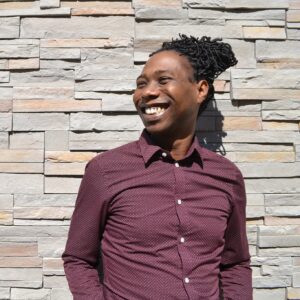
Boulanger-Chatman: This is a very tough problem because we know that these racing rings are well organized and enjoy being chased by our police. These street racing rings are organized enough to create events and exhibitions of car maneuvers by confiscating public roadways. This is brazen and very dangerous behavior. Not to mention, these events and exhibitions are not operating with proper medical or safety staff or protocols in place. I would continue to support measures like overnight street closures and curfews for minors in areas with heavy street racing reports. I would be a proponent of harsher punishments for illegal street racing like larger fines and even confiscation and impoundment for a minimum amount of time of vehicles found in violation of city ordinances against street racing. I understand the allure of this exciting type of entertainment. However, these street racing and “slideshows” are explicitly unsafe for both the persons involved and the onlooking bystanders. This does not even consider the liability implications this can have on the city. I believe we must be tough in our response to these unsafe displays to set the precedent that our citizens will not compromise public safety and infrastructure for entertainment.
Smith: The current efforts are insufficient. As I understand it, these events are advertised on social media. I assume that the police are savvy enough to monitor social media and be present when the events occur. The police need to mount a coordinated effort to block the streets when the event is in progress, tow the cars involved, arrest the drivers and ticket everyone who is blocking the street. It would probably require 8-10 units but the fines should pay for the cost. If the police would do this consistently, street racing would stop in short order. If we continue to ignore it, it will get worse until someone is killed.
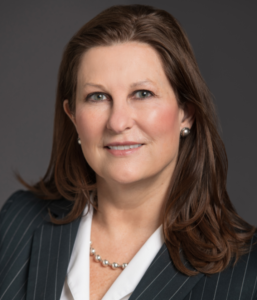
Donnell Willis: As Public Safety Chair of the North Dallas Chamber, I’ve had the head of the DPD Street Racing Taskforce report to our committee on this issue. What seems like a local problem is sometimes national as drivers come from other markets to our neighborhoods to shoot videos to gain attention on social media. These groups are well-organized, with advance takeover and exit plans, making it difficult for DPD to catch them in action. Council passed an ordinance allowing DPD to cite spectators to this dangerous activity to deter crime, which I support as another tool to deter this activity. Though citizens have offered many suggestions, law enforcement’s experience indicates that more severe penalties on the back end of a transgression are the way to deter this criminal activity.
I support HB 2315 that my friend Texas State Representative John Turner has submitted to assist in the forfeiture of vehicles used in these dangerous activities. Currently, a vehicle can only be taken if the driver has a history of reckless driving, and this would expand law enforcement’s ability to deter activity. Law enforcement also suggest the maximum financial penalty be enforced for these arrests to further deter this activity.
PH: Homebuilders and others in the construction trades have been waiting months at a time for building permits. What is your understanding of the underlying cause, and what should the city do to address it?
Burke: One issue is the city’s poor implementation of the permitting software ProjectDox. Second, the city manager must work with the permitting department to ensure that our permitting processes are efficient and streamlined. This is a critical issue, and it is compounding several citywide challenges like our ability to build mixed income housing with every passing day. This is also an economic development issue. The City should not be getting in the way of economic development and the collection of tax dollars that contribute to the city budget. As a member of the council, I will focus on this issue as a priority to ensure that we have a functional and efficient permitting process, and the bandwidth to clear any backlog.
Boulanger-Chatman: Our permitting system is not as efficient as our surrounding cities. As I research more into issues that are crucial to this office, I notice articles and other literature that discusses the inefficiency of our Dallas system. I hear stories from constituents, and even my opponents talk about the many weeks to months it can take to get permits. This is a problem because many potential developers and contractors could and do decide it is much more time efficient and lucrative to develop in cities neighboring Dallas. In my research, I noted that Dallas offers an express plan review called Q-Team. This team is comprised of consultants, owners, architects, engineers, and contractors. These key individuals work together at one time to get the contracted project permitted and underway all within 2-3 business weeks. This, of course, is offered at a nominal rate and is based upon acceptance into the Q-Team program. This shows us that Dallas is very well capable of revamping its permitting process to be vastly more efficient and it already has the working blueprint.
Smith: The official explanation is that a new computer system was installed to speed up the process, with the usual result. The story I have heard is that the bugs are being worked out and things will be better soon. There have been several instances, notably in Dallas County, where new computer systems failed to perform and did more harm than good for a while. Robert Townsend, who wrote “Up the Organization” said that a company should hire enough staff to operate the new system and keep the old staff working in parallel until the new system is performing. He wrote that book in the late ’60s and things haven’t changed much. We need to hold our city manager accountable for the current problem. When the new council takes office, whoever wins the seat should include this issue in the city manager’s performance evaluation.
Donnell Willis: Accountability and performance were always expected of me in the corporate world, and I would bring that same expectation to City Hall. The level of frustration has reached a fever pitch, and Dallas is pushing those with an entrepreneurial spirit to do business in the suburbs. That’s not right. Having to outsource work to get caught up tells me that our processes are out of alignment. I know that there is a study proposed and that the ProjectDox rollout is supposed to be improved, however we lose hundreds of millions in revenue—that we need to help fund our basic services—when we can’t swiftly address these issues.
PN: Why do you think residents are distrustful of their city officials?
Burke: First, I am grateful for the leadership of outgoing Councilmember Jennifer Staubach Gates and appreciate her service over the last four terms. She worked hard to instill trust in her constituents and was an effective councilmember.
I will be a councilmember who puts in the time and effort to listen, learn, and lead for our district. Openness, greater transparency and communication about access to city government processes will be a continued priority. Dedicating time to understanding the issues that are facing constituents and then delivering solutions to these issues is crucial to transparent, trustworthy public service. I am running to provide this type of effective leadership for the district and look forward to earning the trust and confidence of constituents across the community.
Boulanger-Chatman: Speaking as a resident, I am distrustful when I see the same types of people elected to our city offices only to hear about bribery, recusing from votes, and not seeing the improvements that we were promised on campaign trails. I want to be an elected official who does not have any competing or compromising interests as I serve on our city council.
Smith: Because we are told we should be distrustful of city officials, particularly the police, by our political leaders and the media.
Some politicians exaggerate our problems for political gain and the media prints the most outlandish claim. Our residents largely only know what the media tells them.
Fortunately, we do not live in the world we read about in the media. If you will look around you, you will see that things are not nearly as bad as they seem. In the vast majority of cases, we all get along, police officers are people we can rely on, and our public servants are honest and trustworthy.
Donnell Willis: Councilmember Gates has been approachable, accessible and acts with integrity. I’ve worked with other City Council representatives who behave the same. Sadly a few have not, and that shows how the action of one can cloud the reputations of many—and how that cloud might not dissipate for years. City representatives must be held to the same, if not higher, standard as our law-abiding citizens.
PN: If elected, would you reach out to your opponents to avail yourself of those strengths if the occasion arose?
Burke: Yes. I believe everyone in the race genuinely wants to make a positive impact on our district, and if the opportunity arose where someone’s skills and experience would benefit our district, I would absolutely reach out to that person.
Boulanger-Chatman: Yes, I would reach out to my opponents for their ideas and expertise. I am a very aware that I do not have all the answers. In fact, I am always pleased to learn from others. I make a point to ask for help, and I understand and appreciate the value of working with others. I instill this in my classroom every day. I am eager to engage my opponents for their best ideas and their advice from service in their respectively varying fields.
Smith: Of course. We have diverse talents. I know a lot about public works and finance. Some of my opponents know far more than I do about planning and real estate development.
Donnell Willis: Reaching out to my opponents as D13 residents, as well as residents throughout the district, to identify passion and skill sets that could benefit our community across Boards, Commissions and Committees will be an immediate action. Having served as Councilmember Gates appointee to such important groups three times, I understand the value of having good cross communication between district representatives, staff and their Councilperson.
PN: If not elected, what will you do to help both your district (if you are running for council), and/or the city as a whole? Please be specific.
Burke: Running for City Council is truly an extension of my past and current community service and passion for our city. I have a long history of civic engagement, from serving as president of my neighborhood association to serving on various non-profit boards across our city, including the University of Texas Southwestern Medical Foundation Board of Trustees, the Dallas Opera Board of Directors, the Dallas Museum of Art Board of Trustees, and the Texas Business Hall of Fame Foundation Board of Directors. I was also appointed by Councilwoman Jennifer Staubach Gates to serve on the Northwest Highway and Preston Road Area Plan Advisory Task Force and to serve as a Commissioner on the Arts & Culture Advisory Commission of the City of Dallas. I love this community, and I have lived my entire life in District 13 and raised 3 children here. I will continue to do everything I can to make the district, and Dallas, a city with a wonderful quality of life and great opportunities for future generations.
Boulanger-Chatman: One thing I have found encouraging by going around petitioning and canvassing, is that there are many people in my neighborhood who want to get more involved but either do not know how or what they can do. I want to make it a goal to register and update voter status for as many of the residents in my district as possible. Our vote is our voice. Due to municipal elections being so crucial to the impact on our everyday lives in the city, everyone deserves to have their voice heard. We need to make sure we are registered to vote, and that we vote often. I will use all of the networks and influence this campaign run has given me to help me in this goal.
Smith: I will be happy to use my expertise if asked. If not, I will use what I have learned in this campaign to help elect good council members in the next election.
Donnell Willis: I will continue my service and activism in my neighborhood, in the district and in the city just as I have demonstrated for many years.
PN: What is one of the best things about your district?
Burke: Our district’s greatest asset is its people – the hardworking and diverse families and residents of our community that create a culturally rich and vibrant district that contributes to making Dallas one of the best cities in the world to live, work and raise a family. As our councilmember, my focus will be improving the safety of our communities, working on smart policies that support neighborhoods and families, promoting thoughtful growth, and working to enhance the quality of life of all people across Dallas.
Boulanger-Chatman: I am most inspired by my district’s commitment to supporting our DPD and increasing the opportunities for our neighborhoods to be involved with creating solutions to our crime problems. The R.E.A.L. Change plan is producing results which we, as a community, have been demanding. For instance, the R.E.A.L. Change program will see $650,000 invested to establish a recovery services facility. This facility will serve to divert inebriated and disorderly residents from jail. This and services rendered like it will greatly benefit our community and be a good working model for implementation in eastern and western neighborhoods in the district.
Smith: District 13 is probably the safest district in the City. But if you are talking about a specific area, I would have to say Vickery Meadows. It is a place where low income people can find low cost housing. It is also home to a very diverse population of many different nationalities who have, somehow, found a way to get along with each other. There is a lesson there for the rest of us.
Donnell Willis: The community spirit of the people in the neighborhoods. We have so many engaged neighborhood associations and community groups working on making our community and the whole city a better place. I’ll bet if you could gauge the amount of volunteer time helping the less fortunate, the elderly, kids, those with mental illness or addiction, and just improving the area around their neighborhood, our district would rank very high. This sense of community makes District 13 a very special place to live.

